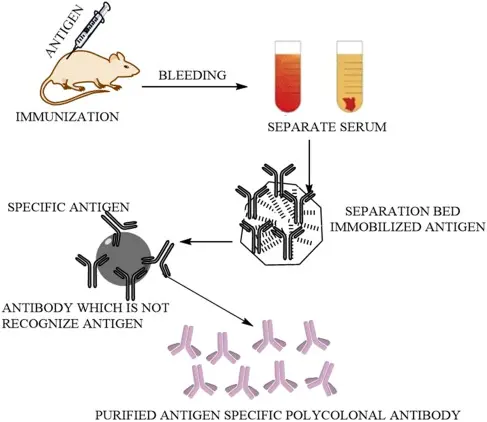Production of Polyclonal Antibodies
Immunization of Animals
Animals (commonly rabbits, goats, sheep, or donkeys) are immunized with an antigen of interest, often mixed with an adjuvant to boost the immune response.
After multiple injections over several weeks, the animal’s immune system generates antibodies against various epitopes on the antigen.
Characteristics
Contain a diverse population of antibodies targeting multiple epitopes.
Typically composed of IgG, but may also include IgM, IgA, etc., depending on the species and immunization protocol.
Not renewable from the same batch once the animal is no longer available (unlike monoclonals.

Advantages of Polyclonal Antibodies
Multi-epitope binding: Higher sensitivity; can bind to conformational and linear epitopes
Easier to produce: Lower cost and faster to generate than monoclonals
Better in detecting variants: Useful when target antigen is variable or partially denatured
Stronger signal: Multiple antibodies enhance signal in assays
Limitations
Batch-to-batch variability: Antibody profiles differ between production animals or over time
Cross-reactivity: May bind off-target antigens due to lower specificity
Finite supply: Once the source animal is no longer available, the exact antibody mix is lost
Unsuitable for therapeutic precision: Lack the specificity required for many targeted clinical therapies
